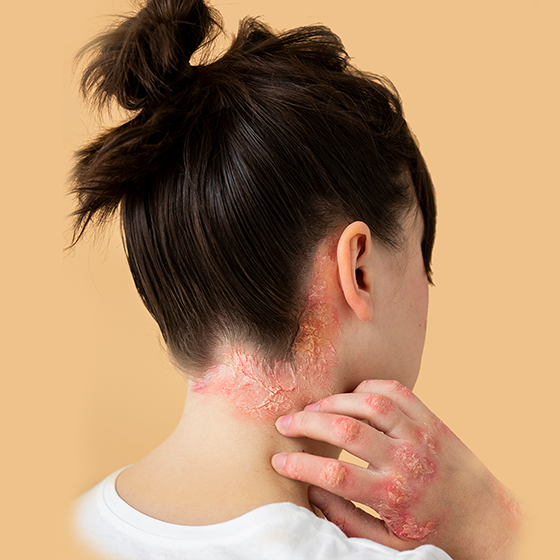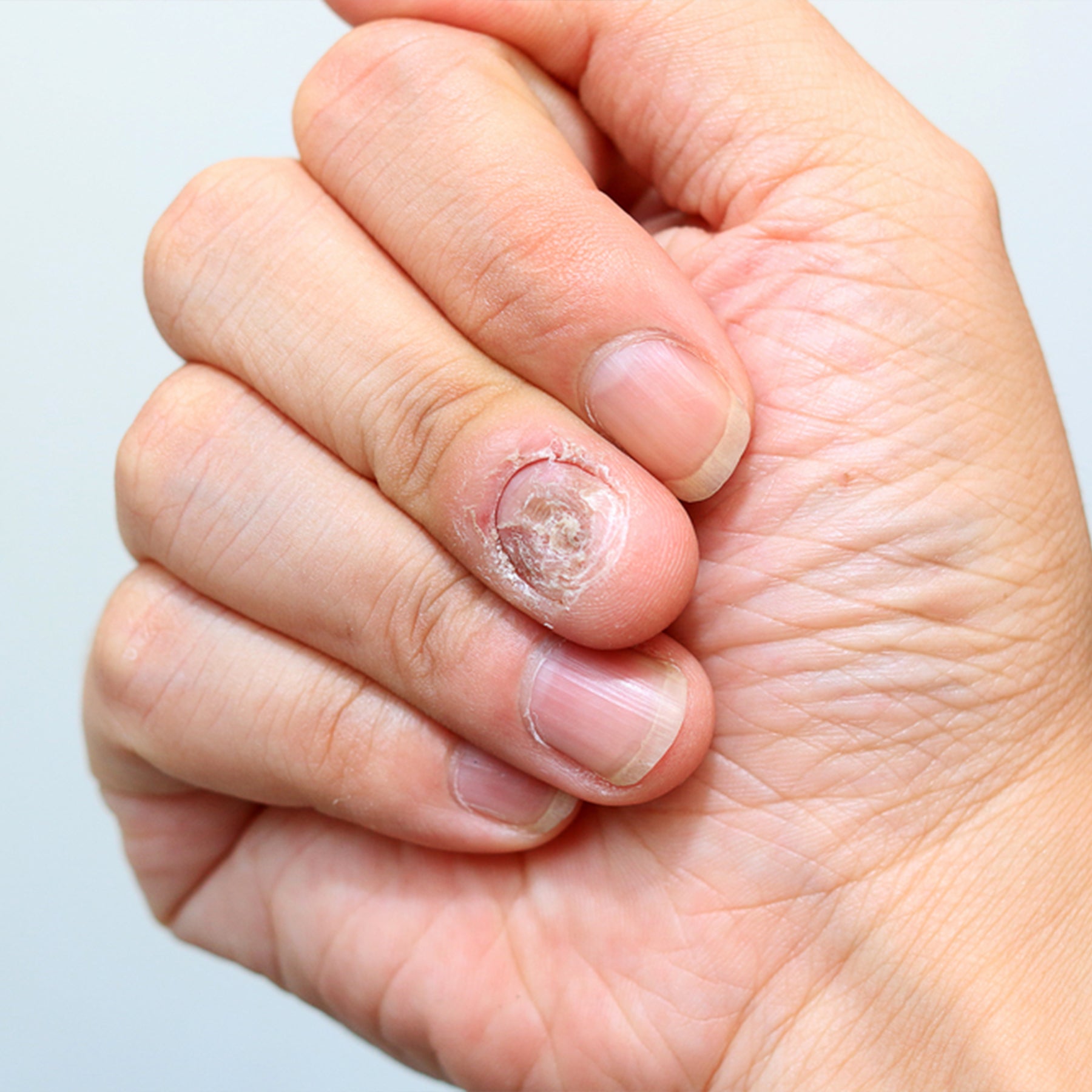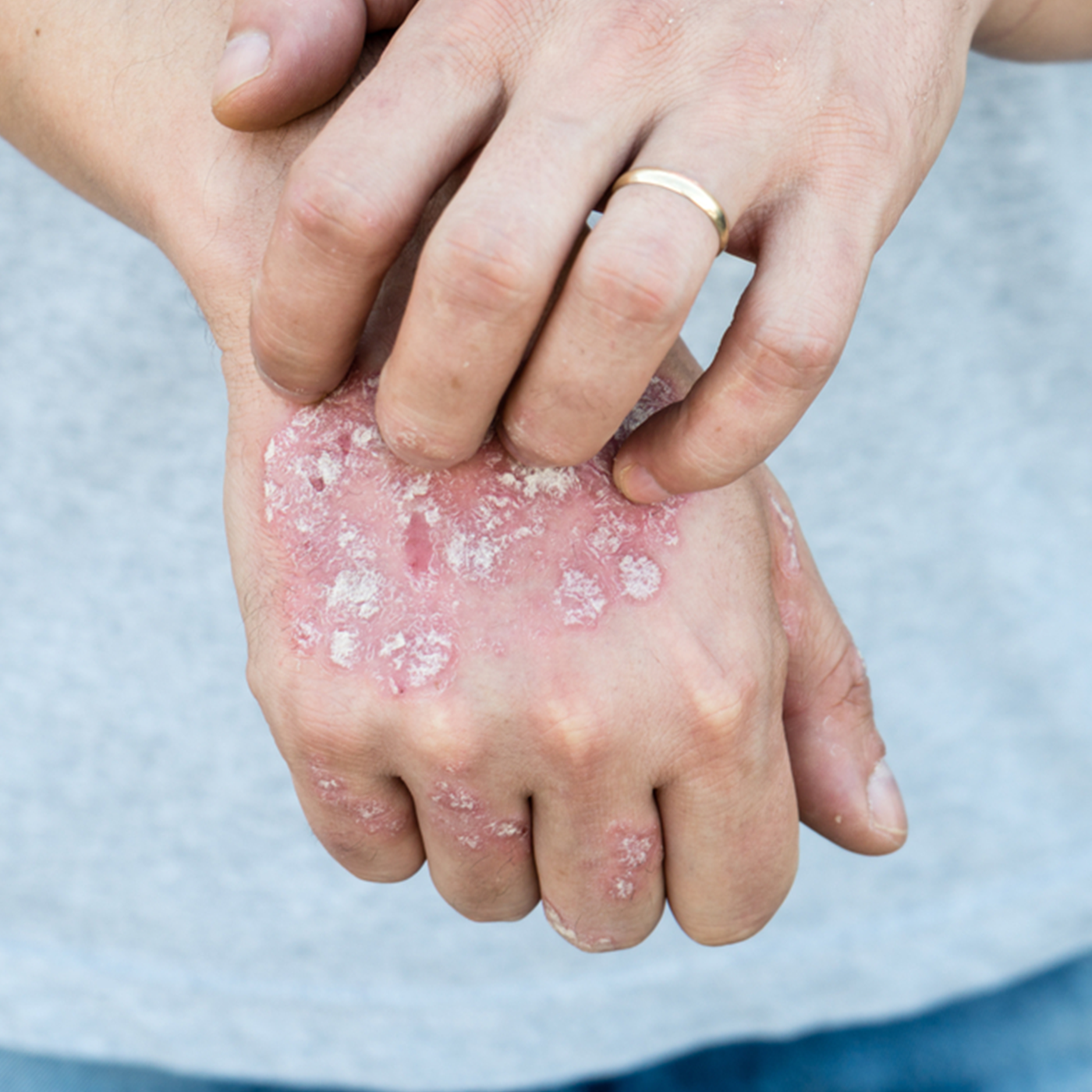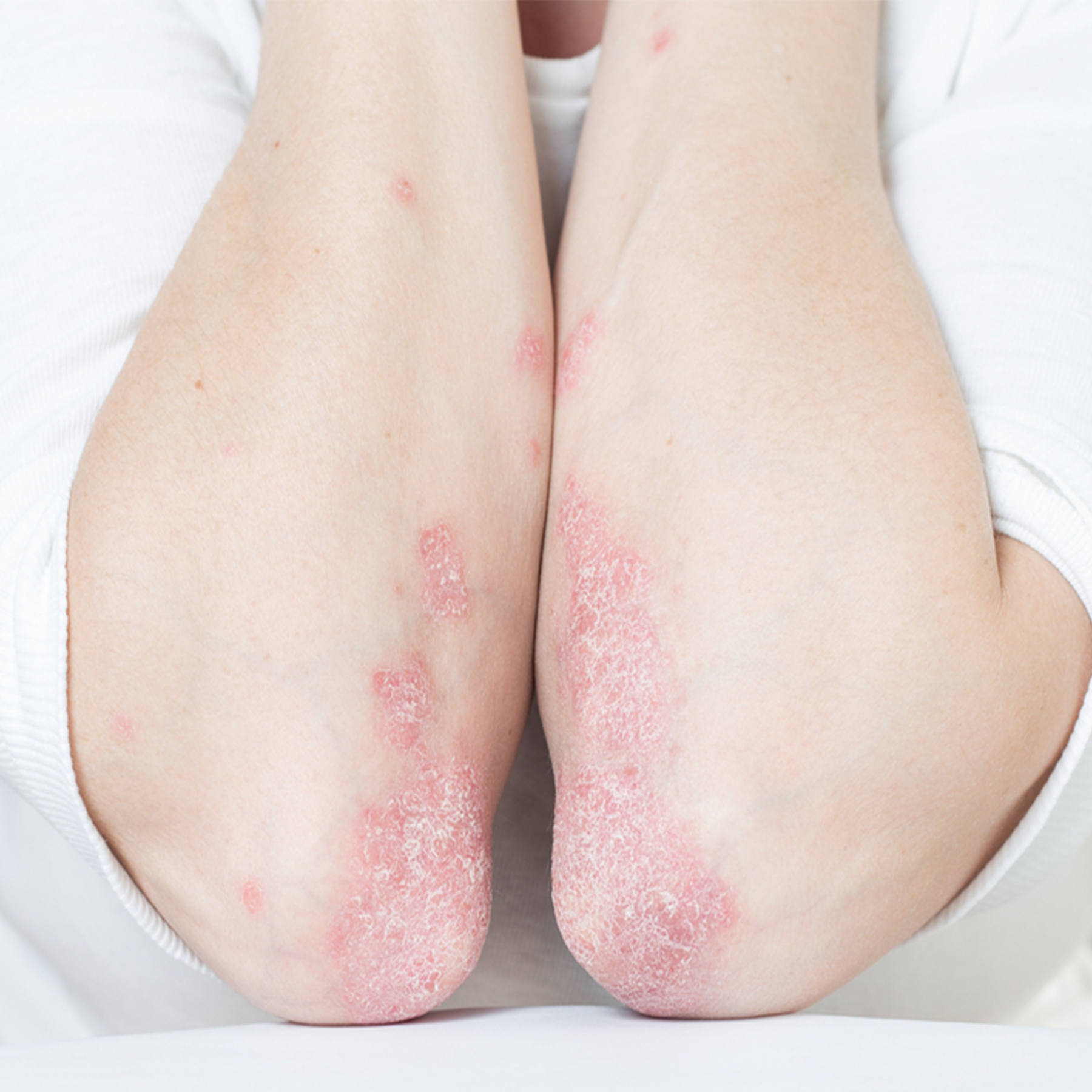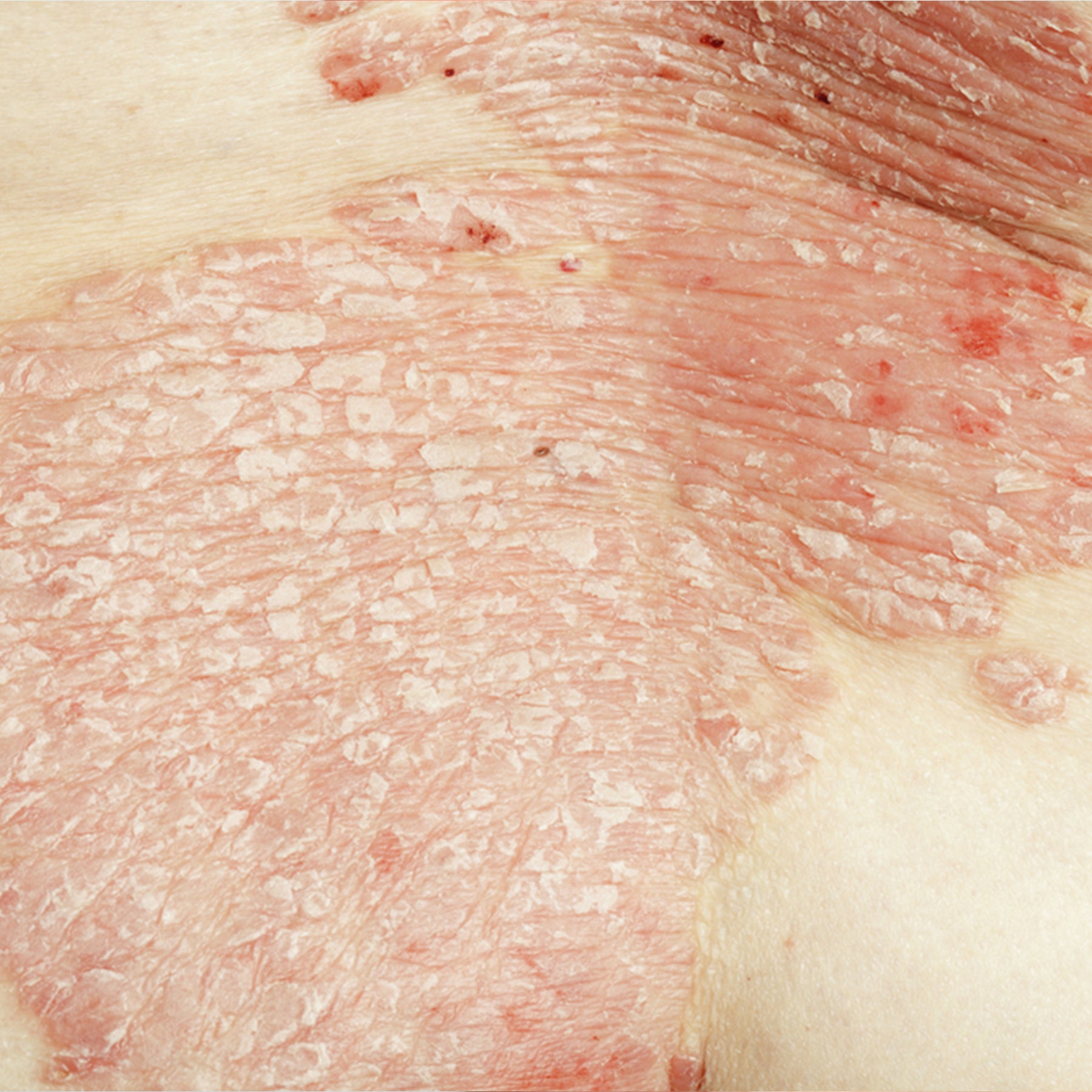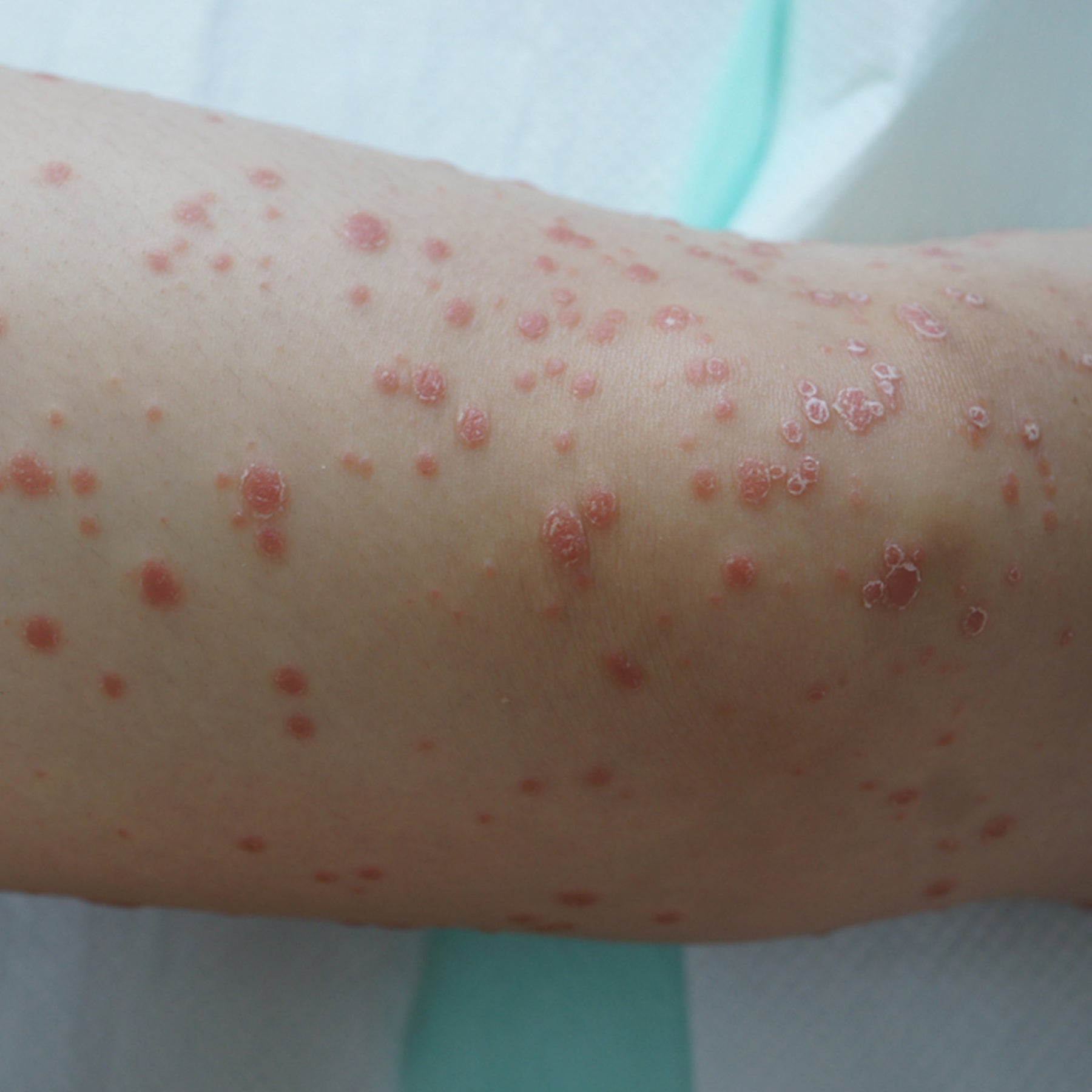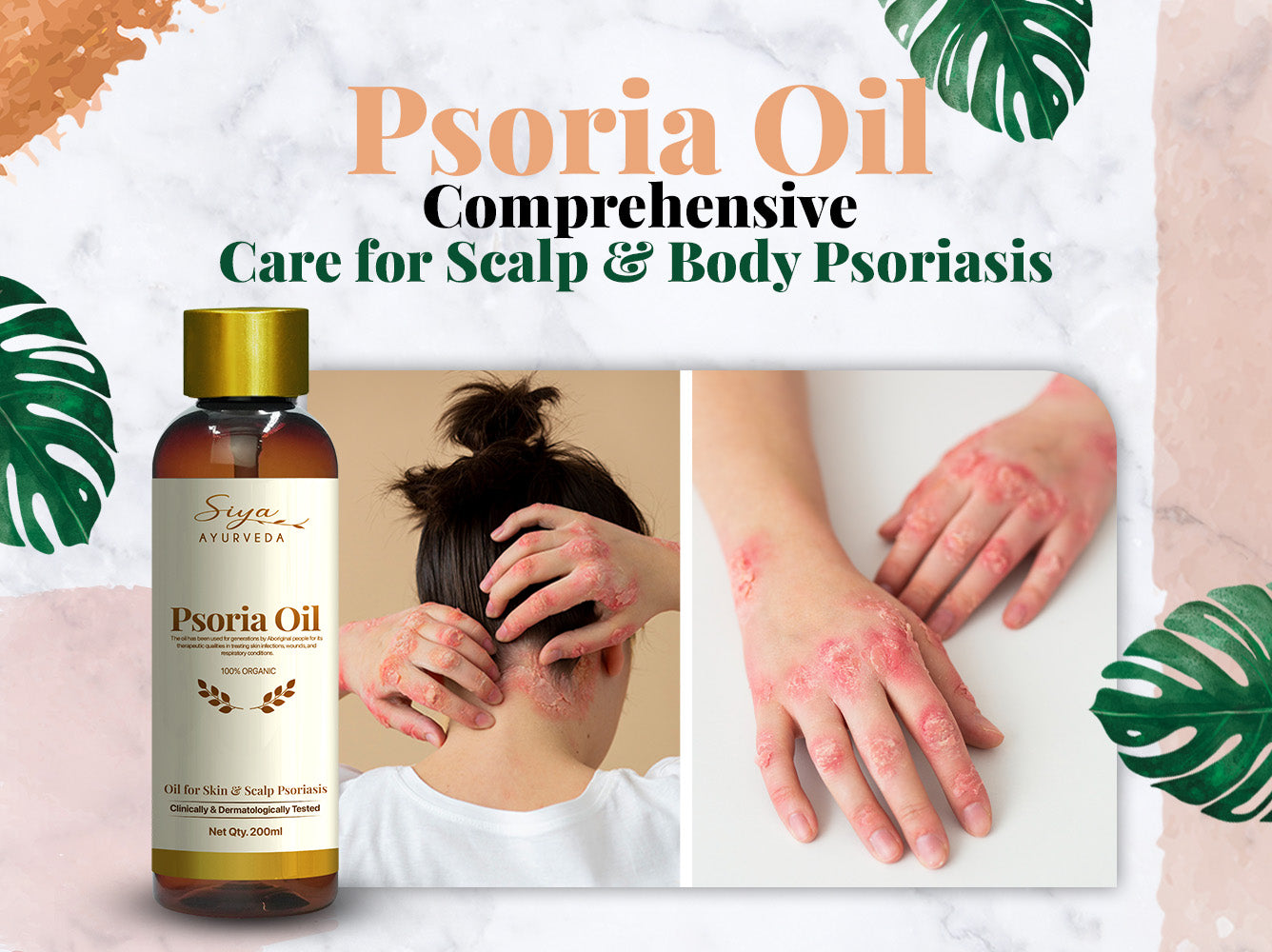Scalp psoriasis is an autoimmune condition that shows its affects on the skin of scalp, leading to the development of red, scaly patches. This condition can be particularly distressing due to its visibility and the discomfort it causes. It is important to understand its cause, all symptoms, and treatment to manage the condition effectively.

Causes of Scalp Psoriasis:
Genetics and Family History:
Scalp psoriasis, like other forms of psoriasis, is influenced by genetic factors. Individuals who have a family history of psoriasis are more likely to get scalp psoriasis, indicating a hereditary component in its onset.
Immune System Dysfunction:
The primary cause of scalp psoriasis lies in an abnormal immune response. In individuals with psoriasis, the immune system mistakenly attacks healthy skin cells, triggering rapid turnover and the formation of thick, scaly plaques on the scalp.
Environmental Triggers:
Various external factors can exacerbate scalp psoriasis. These include stress, cold weather, skin injuries, infections, and certain medications.
Lifestyle Factors:
These unhealthy habits like smoking, consuming excessive alcohol, and obesity can lead to increased susceptibility to psoriasis. Adopting a healthier lifestyle may contribute to better management of the condition.

Symptoms of Scalp Psoriasis:
-
Red Patches and Plaques:
One of the hallmark symptoms of scalp psoriasis is the presence of inflamed, reddish patches covered with silvery-white scales. These kind of patches are scaly, itchy and can cause significant discomfort.
-
Persistent Itch:
Itching is one of the most common symptom of scalp psoriasis and can range from mild to severe. Scratching the scalp can exacerbate symptoms and may lead to temporary hair loss.
-
Dryness and Cracking:
Scalp psoriasis often causes dryness of the scalp skin, which may lead to cracking and sometimes bleeding. Proper moisturization is essential to alleviate dryness and prevent further irritation.
-
Burning Sensation:
Some individuals with scalp psoriasis experience a burning or sore sensation on their scalp, especially during flare-ups. The kind of discomfort can vary in intensity and may impact daily activities.
-
Temporary Hair Loss:
While scalp psoriasis doesn't typically cause permanent hair loss, excessive scratching or harsh treatments may lead to temporary hair shedding. Once inflammation subsides, hair usually regrows.
-
Flaking and Dandruff:
Scalp psoriasis can cause flakes that resemble dandruff. These flakes may fall onto clothing, which can be bothersome and embarrassing for those affected.
Diagnosis of Scalp Psoriasis:
-
Physical Examination:
Diagnosing scalp psoriasis usually involves a thorough physical examination by a dermatologist. The presence of characteristic symptoms such as red patches and silvery scales helps in identifying the condition.
-
Skin Biopsy:
In some cases, a dermatologist may perform a skin biopsy to confirm the diagnosis of scalp psoriasis and rule out other similar conditions like seborrheic dermatitis or fungal infections.

Treatment Options for Scalp Psoriasis:
Topical Treatments:
Topical therapies are often the first line of treatment for scalp psoriasis, aimed at reducing inflammation and controlling symptoms directly on the scalp.
Corticosteroids:
These anti-inflammatory medications are available in various forms such as creams, ointments, gels, and shampoos. They help reduce redness, swelling, and itching associated with scalp psoriasis.
Vitamin D Analogues:
Topical vitamin D analogues like calcipotriene and calcitriol are used to slow down the excessive skin cell turnover, helping to reduce the thickness and scaling of psoriasis plaques on the scalp.
Coal Tar:
Coal tar preparations are available in shampoos, creams, and gels. They have anti-inflammatory properties that help in reducing scaling, itching, and inflammation associated with scalp psoriasis.
Salicylic Acid:
This ingredient helps in removing scales and softening the skin on the scalp affected by psoriasis, making it easier to manage the condition.
Phototherapy:
Phototherapy involves exposing the scalp to ultraviolet B (UVB) light, which helps reduce inflammation and slow down the rapid turnover of skin cells. This treatment can be administered at home with a lightbox or in a clinic under medical supervision.
Systemic Treatments
If there is a severe case of scalp psoriasis which does not respond well to topical treatments, systemic medications may be prescribed to target the immune system's response.
Oral Medications
Some Oral medications like methotrexate, cyclosporine, or acitretin are sometimes used to suppress the abnormal immune response that triggers psoriasis symptoms on the scalp.
Biologic Drugs
Biologic therapies like adalimumab, etanercept, and secukinumab are advanced treatments that specifically target parts of the immune system which are involved in psoriasis.
Alternative and Complementary Treatments:
Some individuals with scalp psoriasis find relief from alternative treatments or complementary therapies.
Aloe Vera:
Aloe vera gel, known for its extravagant soothing properties, should be applied to the scalp to ease itching and irritation associated with scalp psoriasis.
Diet and Lifestyle Changes:
Maintaining a healthy diet, managing stress levels, and avoiding triggers like smoking and heavy alcohol consumption can contribute to better management of scalp psoriasis symptoms.
Managing Scalp Psoriasis:
Education about the Condition:
Understanding scalp psoriasis, its triggers, and treatment options is important for effective management and reducing the frequency of flare-ups.
Support Groups:
Joining support groups or connecting with others who have scalp psoriasis can provide emotional support, practical tips, and encouragement during the management of the condition.
Healthy Lifestyle Choices:
Regular exercise, maintaining a good diet, and using stress managing techniques like yoga or meditation can help in overall well-being and help manage scalp psoriasis symptoms effectively.
Scalp psoriasis is a chronic condition that requires a comprehensive approach to management. By understanding its causes, recognizing its symptoms, and exploring the various treatment options available from topical therapies to advanced biologic drugs, individuals can ease their condition and improve their quality of life. Regular consultations with healthcare providers and adherence to treatment plans are essential in managing scalp psoriasis effectively.


